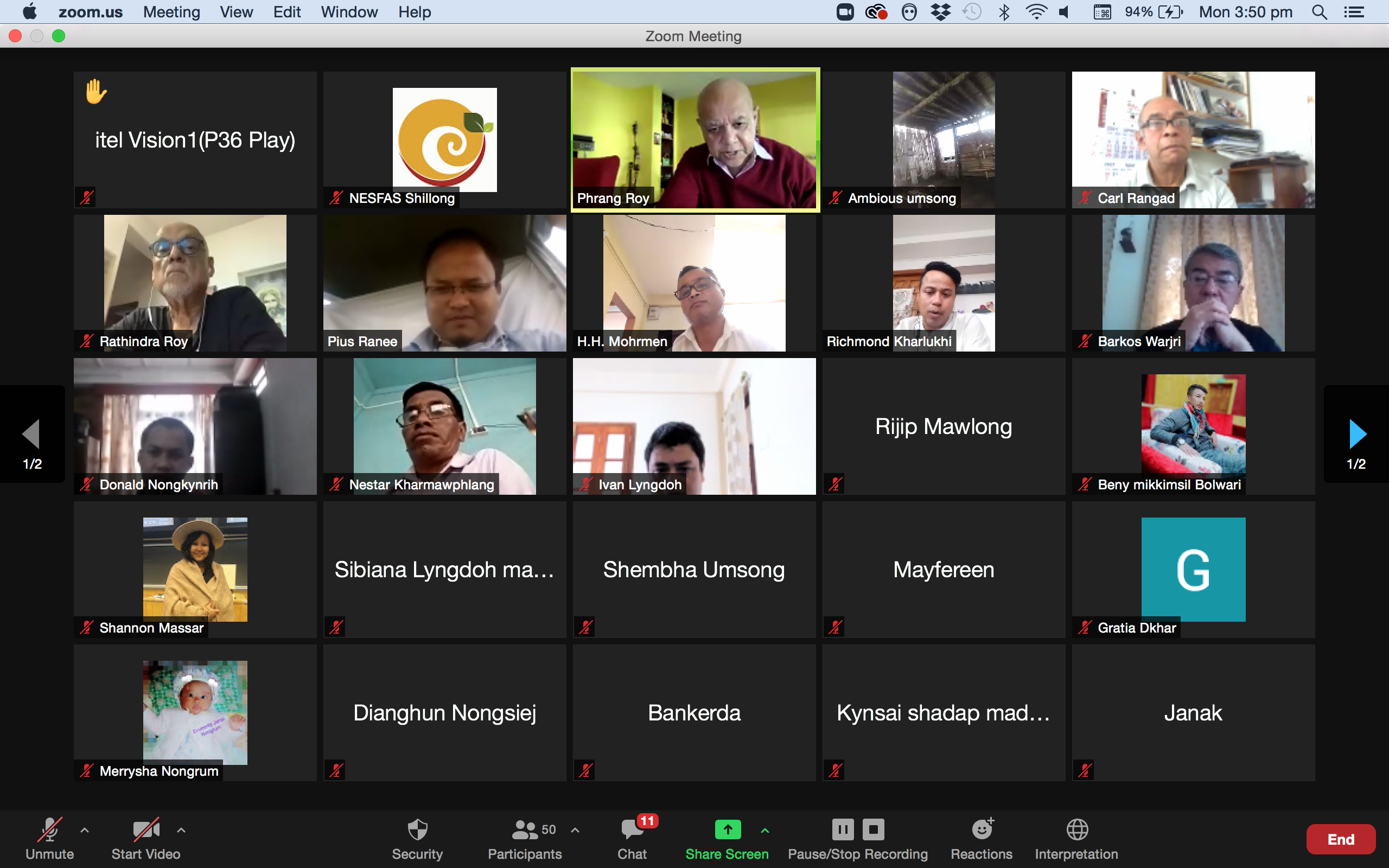NESFAS organized an online webinar on the strategic plan to address the concern for the communities’ resilience in the time of the COVID-19 pandemic in consultation with medical experts, representatives from communities, and like-minded organisations, board members, advisors, and staff. Phrang Roy, Founding Chairperson, NESFAS moderated this webinar and the plan was presented by Pius Ranee, Executive Director of NESFAS,
NESFAS aims to strengthen the community solidarity, non-discrimination, co-operation, and social protection in all the communities by using indigenous values and that no one should be left behind either in sickness or despair.
As part of the preparedness plan, the team is presently supporting 130 communities to run WASH campaigns, promote COVID-19 protocols, also at the same time facilitating the need of having quarantine centres in every community with the support of Church leaders, women, and youth groups or SHGs. There is also the support of medical needs such as oxygen tanks and sanitizers, and ensuring vaccine acceptance in every village in collaboration with the health and frontline workers of every community, like ASHAs and Anganwadis. The work also focuses to ensure building the body’s resilience and immunity through the consumption of the right food groups.

Team NESFAS along with Board Members, Friends, Community Facilitators and Partners discussing the COVID-19 preparedness plan at the webinar.
Barkos Warjri, NESFAS Board Member, suggested that is it crucial for all the village councils to be at the forefront of this initiative in order to succeed the plan.
Dr. Carl Rangad, former vice-chairperson NESFAS, shared, “Given that one of the strengths of NESFAS is facilitating livelihood activities, tackling livelihood initiatives at the ground level is of utmost importance and needs to be dealt with as lockdowns keep on prevailing and the community farmers at large are affected.”
A bigger concern pointed out by Rathindra Roy, NESFAS Advisor, is the right communication about the behaviour of the COVID-19 virus and the nature of the vaccine or how it works, for the rural communities’ perception. In this case, communities must receive the right guidelines and information, and available for them in vernacular.
Mayfereen Ryntathiang, President of Grassroots Shillong expressed, ‘We should learn from this opportunity to strengthen the indigenous food and keep promoting wild edibles that we have in our community. Better health care systems also need to be advocated for the community as a whole.”
Shannon Massar, Director of Faith Foundation, further added that there is a need for community ownership to build resilience on how to combat the virus, and how organisations like NESFAS and ours can provide support when required and needed.
Representing the communities, Nestar Kharmawphlang from Laitsohpliah, said, “This initiative should also address the importance of kitchen gardens so that communities are able to consume local foods to help with their immunity”.
Dr. Rymbai from Laitryngew PHC highly recommended that rural communities would need to be self-reliant and take preventive measures at their own capacities as much as they can.
“As Indigenous Peoples, we need to seek for traditional values that may be helpful in tackling the pandemic”, shared Phrang Roy.
Wakringtonggre community in West Garo Hills is the first NESFAS partner community that has 100 percent vaccination completion for 45 years and above community members. However, other communities are also trying their best at the ground level to combat the pandemic. At this time of hardship, it is only through solidarity response and cooperation that all communities can fight this war, with the support of various stakeholders, acceptance of indigenous values, understanding of the seriousness of the disease and medical needs, support for mental stress and sensitisation.
 Translate
Translate




